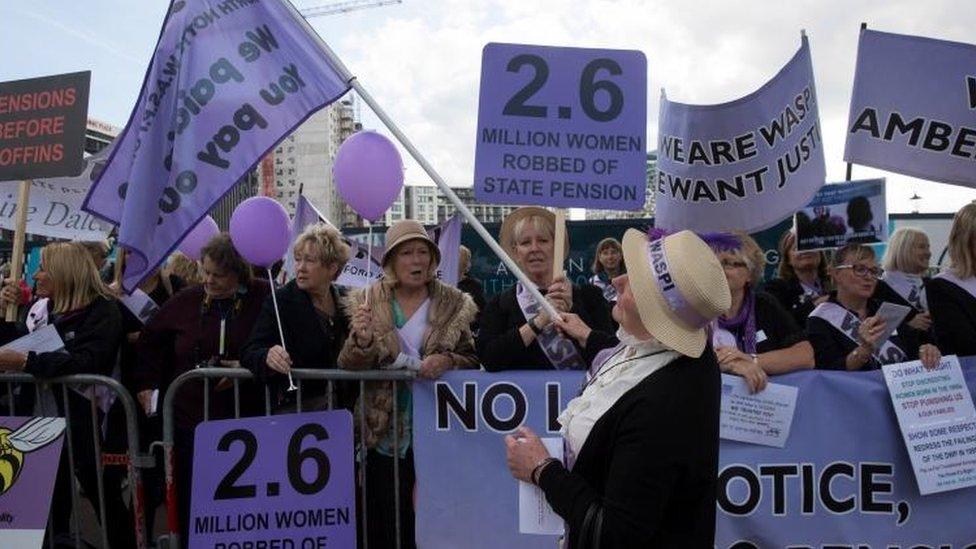'Regret' over women's pension changes
- Published

Thousands of women should have been given better notice that they must wait longer for their state pension, say two former pensions ministers.
Baroness Altmann, the minister until July, said that the way women born in the 1950s were told was "a massive failure in public policy".
She expressed regret for not helping them while in her government position.
Her predecessor as minister, Steve Webb, said it was "surprising that they were not given clearer information".
Age change
Under the 1995 Pensions Act, the government decided that the pension ages of both men and women would be equalised by 2020. Previously, women retired at 60, while men retired at 65.
In 2011, state pension ages were raised at an even faster rate.
Some of those born between April 1951 and 1960 will not qualify for a pension until the age of 66.
Campaigners belonging to Women Against State Pension Inequality (WASPI) say some women had very little notice that they would not get a pension at 60.
They are calling for "transitional arrangements" for those affected.

Francesca Estasy, from Manchester, says she only received a letter about the change when she was 57, in 2013. This, she says, allowed little time to make alternative arrangements for her approaching retirement.
"I don't think it was fair notice at all. We should've all been notified way, way before then, so we, we could have put some sort of plan into action," she told the BBC's Rip Off Britain.
Though she had resigned herself to working six years longer than she had always expected, she lost her job when she turned 60 this year. She has struggled to find another.
"I've actually gone from not really worrying about money to not being able to sleep at night," she says.


Baroness Altmann told the BBC's Rip Off Britain: Live programme that the government failed in its attempt to communicate many years ago with the women who were affected.
"It perhaps misled them, or lulled them into a false sense of security, and if they did believe that their state pension age was 60, partly that was because the government led them to believe that," she said.
The comments are very different from those made when she was the pensions minister when she insisted that letters sent to women informing them of changes to their state pension age were clear.
She now says she "believed what officials were telling me".
Mr Webb, who was pensions minister during the coalition government, said: "Given that we now know that the Department for Work and Pensions undertook surveys in the early 2000s which showed a significant minority of women were not aware of the 1995 Act timetable, it is surprising that previous administrations did not act upon that information at that time and take action to improve awareness of the changes."
The Department of Work and Pensions said the decision to equalise the state pension age achieved a long-overdue move towards gender equality, and there were no plans to change the transitional arrangements already in place.

When will you get a state pension?

The government's state pension calculator is available here., external